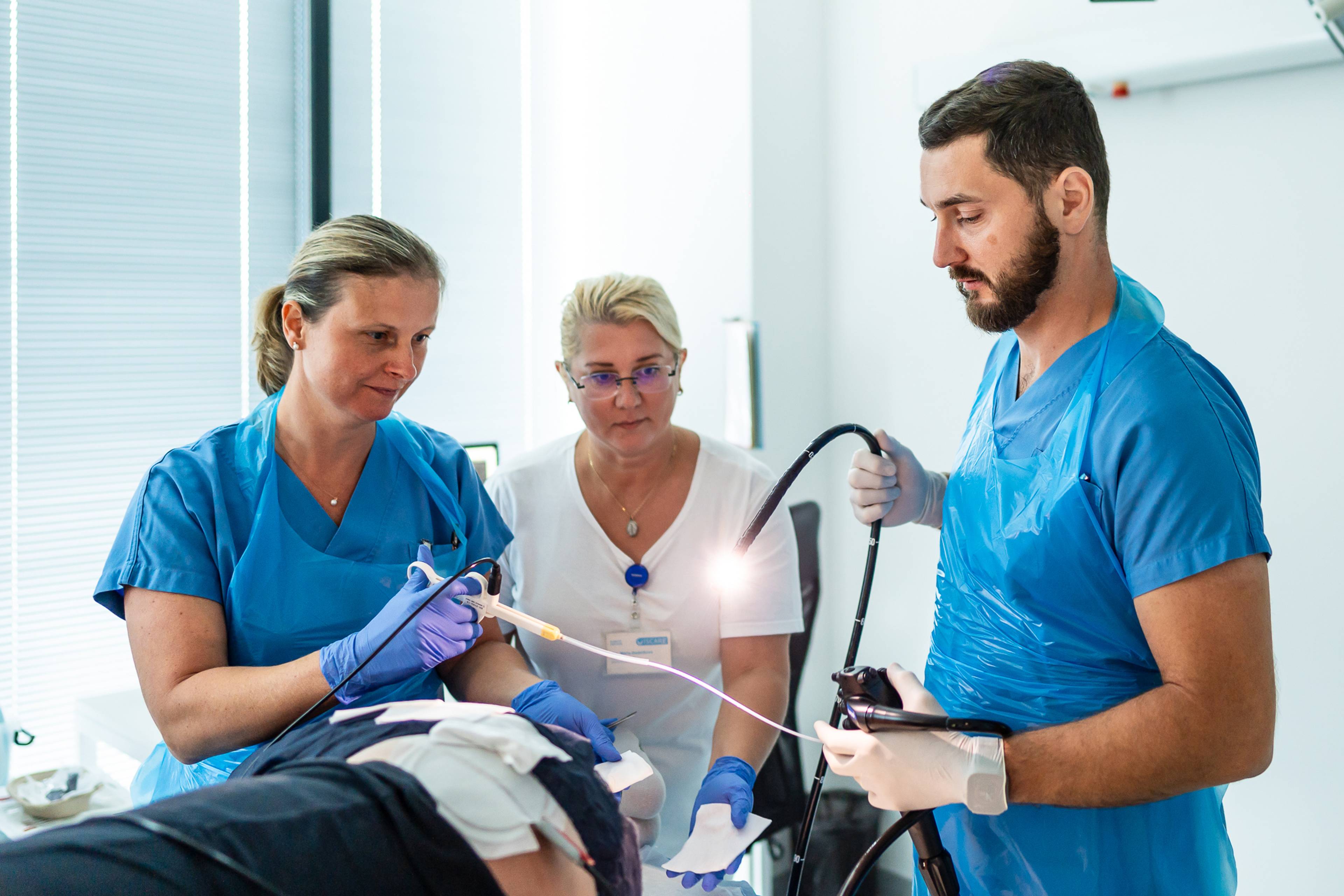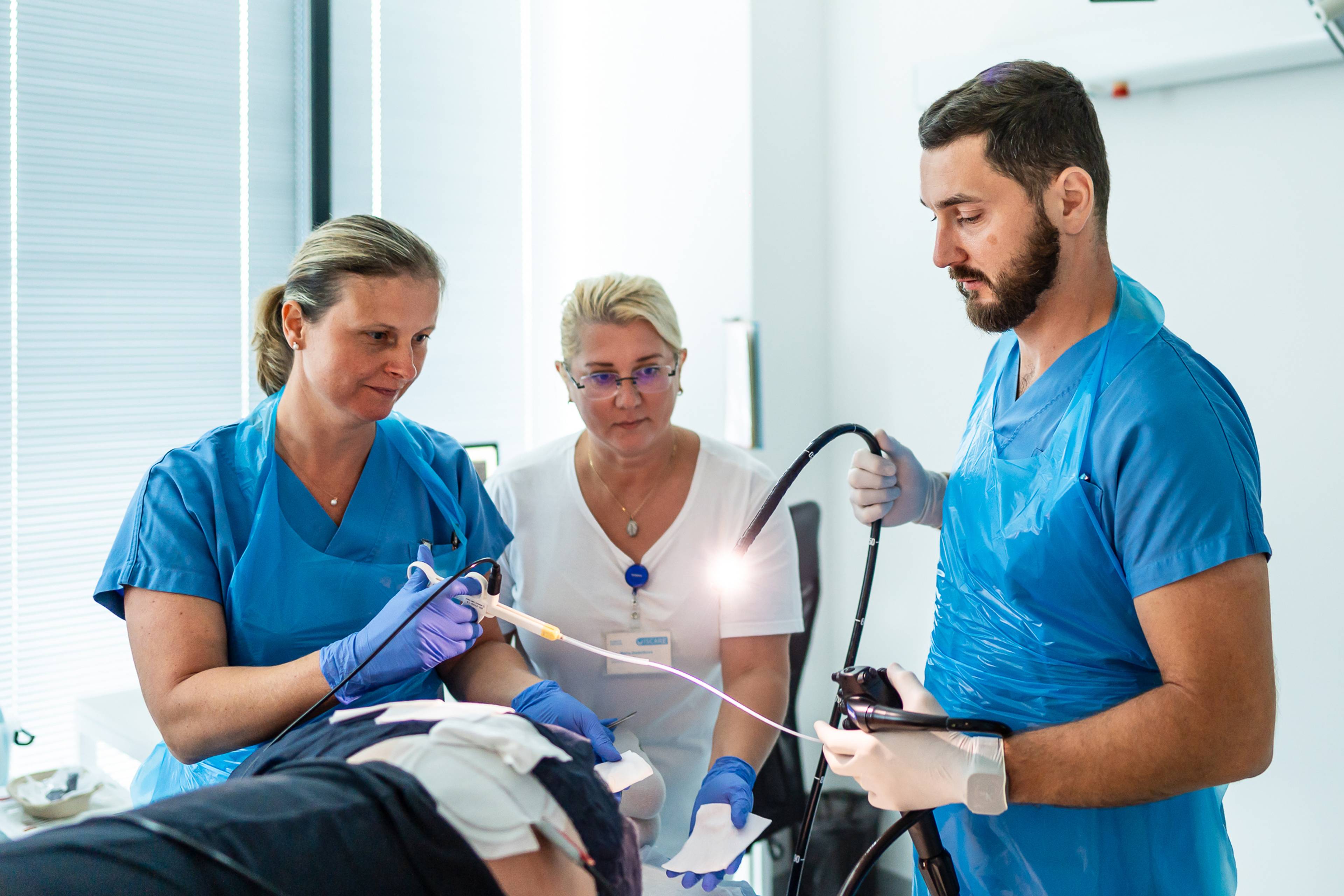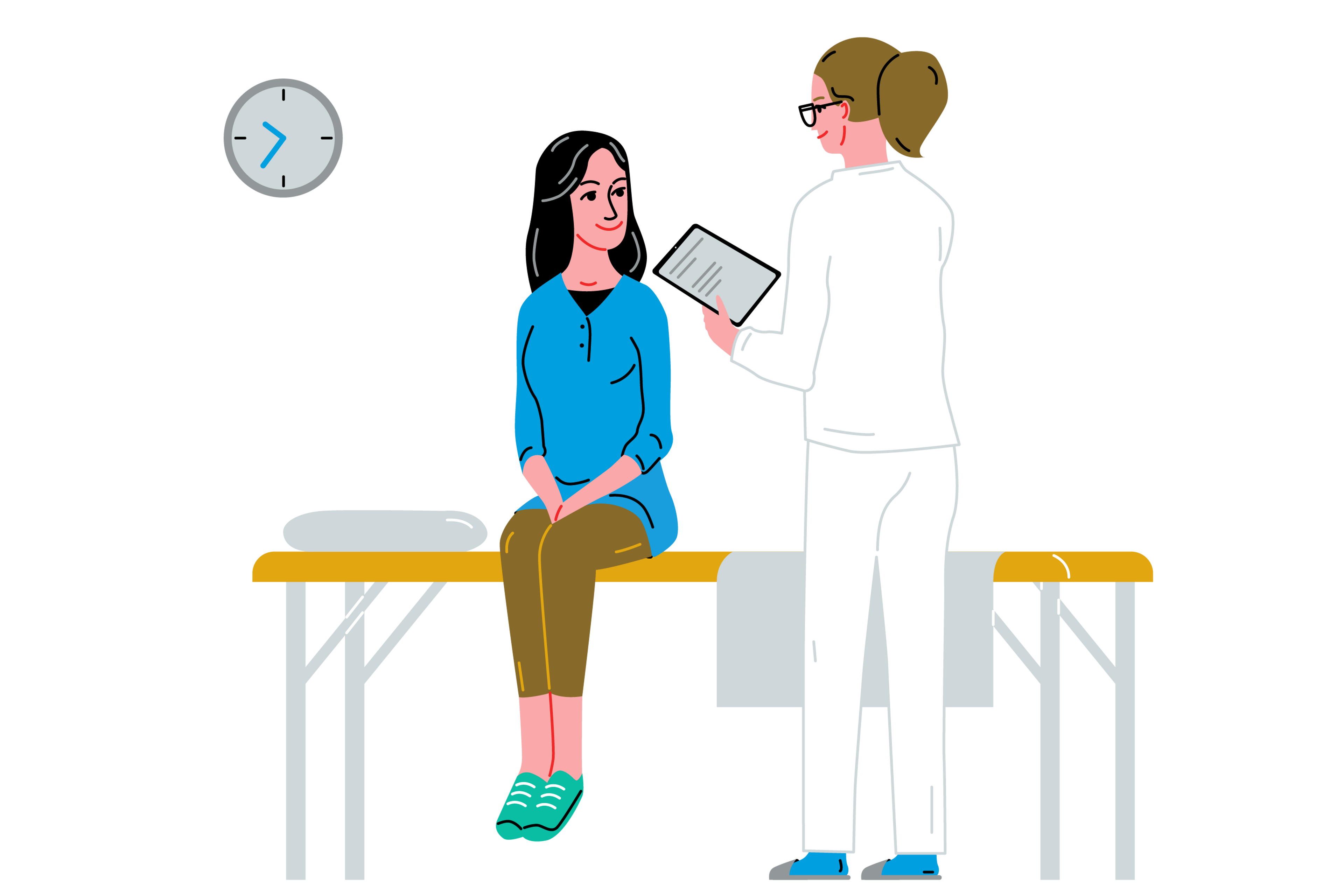Colonoscopy: Modern method of colon examination
- Colonoscopy is an endoscopic method used to diagnose and treat colon diseases.
- Using a flexible thin device called an endoscope, inserted into the colon through the rectum, this examination allows direct visual imaging of the intestinal mucosa.
- The doctor can take samples for further examination and, if necessary, perform therapeutic procedures such as treating bleeding, removing abnormal tissue, reducing tumors, clearing or widening narrowed sections of the intestine, or removing foreign bodies.
- The examination itself usually takes 20-30 minutes. In the case of an examination under analgesia, the duration of the examination itself and the subsequent recovery time in the recovery room are determined by the anesthesiologist's instructions.
Types of colonoscopy
Screening colonoscopy
Preventive colonoscopy refers to the examination of the large intestine using a flexible endoscope in asymptomatic individuals with no increased risk of colorectal cancer (CRC), i.e., with no history of inflammatory bowel disease (IBD), colorectal cancer, or polyps in the examined individual and, at the same time, no history of CRC in their close relatives under the age of 60.
Chromo-colonoscopy
Chromo-colonoscopy is a special type of colonoscopy in which dyes or special optical technologies are used during the examination to allow the doctor to see the colon mucosa better and detect abnormal lesions more accurately, such as polyps, inflammatory changes, precancerous lesions (dysplasia), and early-stage colon cancer.
Preparation for examination
Preparation for examination under analgesic sedation
Preparation for examination under analgesic sedation
One month before the examination
- Arrange for a preoperative examination with your general practitioner.
- Internal examination with the conclusion "Patient capable of undergoing analgesic sedation" (results must not be older than 1 month).
- Bring the following results with you: CRP, JT / Bil, ALT, AST, ALP, GMT/ , urea, creatinine, minerals / Na, K, Cl /, glycemia, KO + diff., Quick, APTT, and EKG.
- If you are taking blood thinners, consult your doctor about the possibility of discontinuing them or switching to an injectable form (low molecular weight heparin).
7 days before the examination
- If you are taking iron supplements (Ferronat, Maltofer, Sorbifer Durules, Aktiferrin, etc.), stop taking them.
- Follow a residue-free diet.
- If you suffer from constipation, switch to a mushy diet 3 days before the scheduled procedure.
1 day before the examination
- Breakfast: Lightly colored tea, 1 piece of white bread without toppings or white yogurt + plenty of fluids.
- Lunch: Clear broth + plenty of fluids.
- Dinner: Laxative.
- Throughout the day: Grape sugar, candies.
Use of the bowel cleansing preparation
- Prepare the preparation according to the instructions.
- Always take in divided doses.
- On the evening before the examination, from 5 p.m., drink the first part of the laxative and finish with a sufficient amount of clear non-carbonated fluids – at least 2 liters (1 liter is sufficient for Fortrans).
- n the morning of the examination, drink the second part of the laxative 5-6 hours before the examination.
After the examination
- Arrange for someone to accompany you when you leave the clinic (approximately 1.5 hours after the procedure).
- You will be informed of any restrictions regarding diet and physical activity immediately after the examination.
- Do not drive a motor vehicle after the examination and avoid activities that require attention. We recommend rest and postponing important decisions.
Preparation for examination without analgesia
Preparation for examination without analgesia
- You do not need a preoperative examination.
- Do not drink, eat, or smoke for 3 hours before the examination.
- After the procedure, you may leave unaccompanied and without restrictions (unless your doctor says otherwise).
Take a look
What it looks like
Gastroenterology ISCARE






